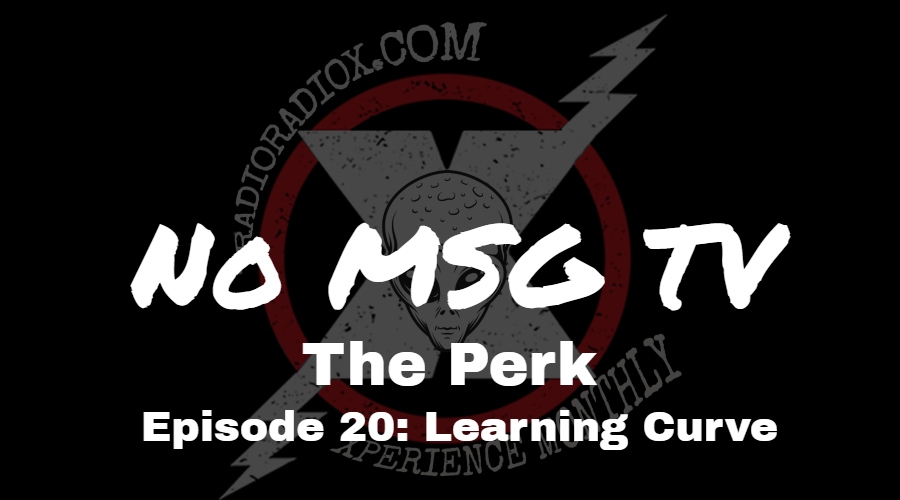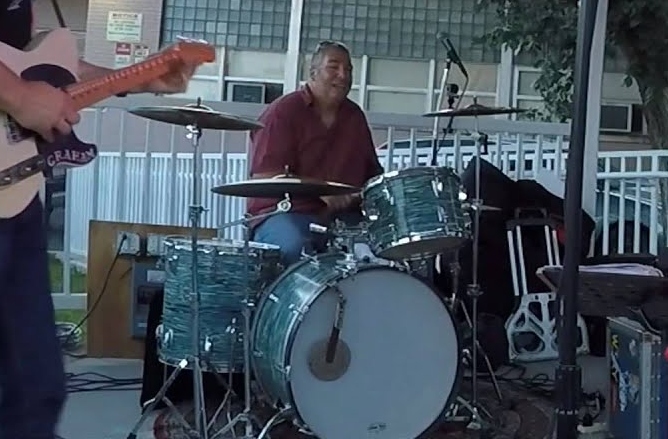Interview with Robert Gregory Browne by: Liam Sweeny
Written by Staff on December 10, 2022
If you’ve ever achieved anything, really achieved, you got two ways to go about it.
You can pull it out at parties, or at the convenience store by your house, and make sure
everyone you know knows your claims to fame. You could also sum up a lifetime others
would dream about by saying you were just ‘doing some stuff.’
Robert Gregory Browne has spent a life ‘doing some stuff.’ Starting with the dual
love of music and writing, he went on to join the Hollywood hubbub and weave his way
into your homes through the flat screen. He parlayed Hollywood into a massively
successful indie-published book, Trial Junkies.
I sit with Robert and we discuss Saturday morning cereals.
RRX: You grew up with an internal battle of muses, that of music and writing. And
while it’s perfectly acceptable to let them both hold sway, eventually, you have to put
your ten thousand hours into something, and it wins out. Which seems to have been
writing for you. How did that battle go?
RGB: The battle is ongoing. While writing ultimately became my profession, music
has always been right up there in terms of passion. Fortunately, I was able to marry the
two when I wrote a musical a couple years back, called “Dream That You Can Fly”,
which is probably one of the most satisfying creative experiences I’ve ever had.
RRX: One of your early gigs was working for CBS-TV as a script typist. So, I
imagine that a lot came across your desk that you’d get ready for its role in entertaining
the masses. I can only imagine what you’d pick up from the water cooler. What were
some of the wisdoms you gleaned about television from that angle?
RGB: A lot of scripts crossed my desk and while some of them were very good,
others were quite bad, so if I learned anything at all, it was what works in television and
what doesn’t. I’m not sure that counts as wisdom.
RRX: You won a Nicholl screenwriting fellowship, which is connected to the
Academy of Motion Picture Arts and Sciences. People know awards but may be a little
hazy on the difference between an award and a fellowship. Can you explain to us what a
Nicholls screenwriting fellowship is, in comparison to just an award?
RGB: With an award you usually get a nice pat on the back for a job well done. With
a fellowship like the Nicholl, you are given a substantial grant that allows you to pursue
your craft without having to worry about paying the rent for the next year. The Nicholl
also opened up doors that are normally closed in Hollywood, and once a Nicholl fellow,
always a Nicholl fellow. The Academy keeps in touch on a regular basis and is very
supportive of our careers.
RRX: Defining ‘kicking around Hollywood’ as writing, among other things, the
Saturday morning cartoon Spiderman, is a fun way of phrasing a time period. But so it
was. Paint the landscape of that time, if you will. What were things you’d learn if you
were kicking around Hollywood like you were?
RGB: After my first script sold, my days in Hollywood were spent going from
meeting to meeting pitching stories, auditioning for projects, and writing “spec” scripts
in hopes of landing a lucrative deal. What I learned is that screenwriter William
Goldman was right when he said that “Nobody knows anything” in Hollywood. Most are
just throwing spaghetti against the wall.
RRX: Aging is a bitch. But losing traction in your career because you’ve gotten
older, even more so. And unfortunately, you ‘aged out’ of Hollywood. So how does that
happen? Is it a pure ‘market’ decision? Can you overcome it by staying ‘hip’ in some
way? Is it an issue of not being relevant anymore, or do older people just say ‘screw it’
after a while?
RGB: I got into the film business at thirty-five, and one of the first things I was told
by my agent was “Write fast, because once you turn forty it’ll get much, much harder.”
And she was absolutely right. I think the people who manage to overcome this are those
who become such a valuable commodity that nobody cares how old they are. But
creative executives get younger every year and most of them want to work with people
they can relate to. This may have changed since my time, but I don’t think so.
RRX: So back to long-form writing. As a novelist, you went from being traditionally
published to having an indie hit. And that’s not easy. Most people who strike out indie
sell less than a hundred books. What did you have going for you, and against you with
your indie success?
RGB: Most traditionally published books also sell fewer than a hundred copies. You
can look at the Bookscan stats on this.
But there are two major benefits to publishing traditionally. First, you have to prove
you’re good enough to get past the gatekeepers. You have to write at a level of
proficiency that’s considered publishable. That means understanding how to create
characters and develop logical, entertaining stories, and do it in a way that is compelling
to an editor and ultimately a reader.
Second, it’s a fantastic way to hone your craft. When you’re traditionally published
you work with people who are constantly trying to get you to produce your best work,
and their challenges to your story logic and dialog and prose choices can be extremely
beneficial.
My decision to go indie was purely a financial one. Traditional publishing only pays
pennies on the dollar, and indie publishing has the potential to be far more lucrative. I
could clearly see that the traditional model—as it was back then—was heading off a cliff,
and decided it might be best to jump into the indie market while it was relatively fresh
and new. I think my success with Trial Junkies had a lot to do with timing, but who
knows? Maybe I just got lucky. Luck is a huge part of this business.
What indie publishing gave me was complete control. I could write what I wanted,
release it when I wanted to, and wasn’t required to stick to one genre to satisfy some
number cruncher’s bottom line.
That said, complete control also comes with a price. You and you alone are
responsible for everything from writing to editing to cover design to marketing. You are
an entrepreneur. You make all the decisions. And if that isn’t your thing, you should
probably try to publish traditionally.
RRX: Here’s where you answer the question I didn’t ask. Comments? Remarks?
Promo? Educate, enlighten, emote – the floor is yours.
RGB: There is no one path to success in writing or music. How Rob made it will not
necessarily work for Joanne. But whatever your way in, you have to do the hard work.
There’s no way around it. I’ve worked very hard to hone my craft—both in writing and in
music—and am still learning and improving as I go.





 RadioRadioX
RadioRadioX